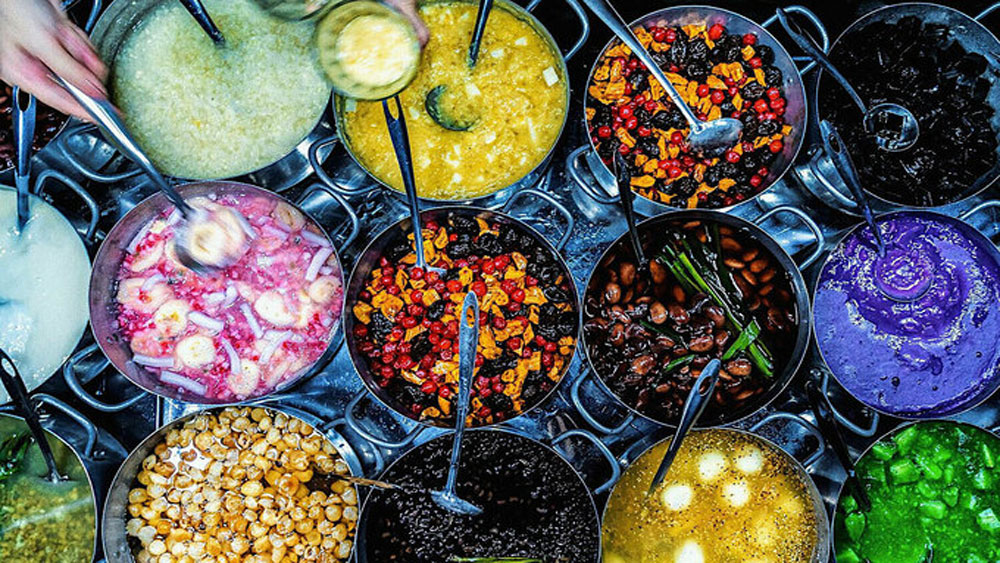Hue cuisine seeks UNESCO recognition as intangible cultural heritage
Phan Thanh Hai, director of the provincial Department of Culture and Sports, said Hue cuisine strongly demonstrates its cultural values, history, customs, arts and has its own identity.
 |
|
Hue-style sweet soup is one of the most well-known dishes in Thua Thien-Hue Province, central Vietnam. |
Hue cuisine has become a brand symbolic of Vietnamese culinary culture. It is not only the precious heritage of the Hue people and the Vietnamese people, but also deserves to be included in UNESCO's representative list of the Intangible Cultural Heritage of Humanity, Hai said.
In order to be eligible for UNESCO recognition, it is necessary to propose to the Ministry of Culture, Sports and Tourism to include Hue cuisine in the list of national intangible cultural heritages, he added.
Currently, Hue has more than 1,200 dishes, including bun bo Hue (rice vermicelli with beef), Hue-style sweet soup, spring rolls and com hen, a rice dish with rural ingredients like baby mussels (hen) and fresh herbs.
An intangible cultural heritage is a practice, representation, expression, knowledge, or skill, as well as instruments, objects, artifacts, and cultural spaces considered by UNESCO to be part of a place's cultural heritage.
Vietnam has 12 intangible cultural heritages recognized by UNESCO.
Hue was the seat of the Nguyen Dynasty, the last royal family to rule the country from 1802 to 1945. It is home to royal tombs, ancient palaces and pagodas that attract millions of foreign visitors every year.
Currently, Thua Thien-Hue has five world heritages, including Hue's Complex of Monuments, Nha nhac or royal court music in Hue, Nguyen Dynasty woodblocks, Nguyen Dynasty documents, and literature on Hue royal architecture.
Source: VnExpress
 Bắc giang
Bắc giang














Reader's comments (0)